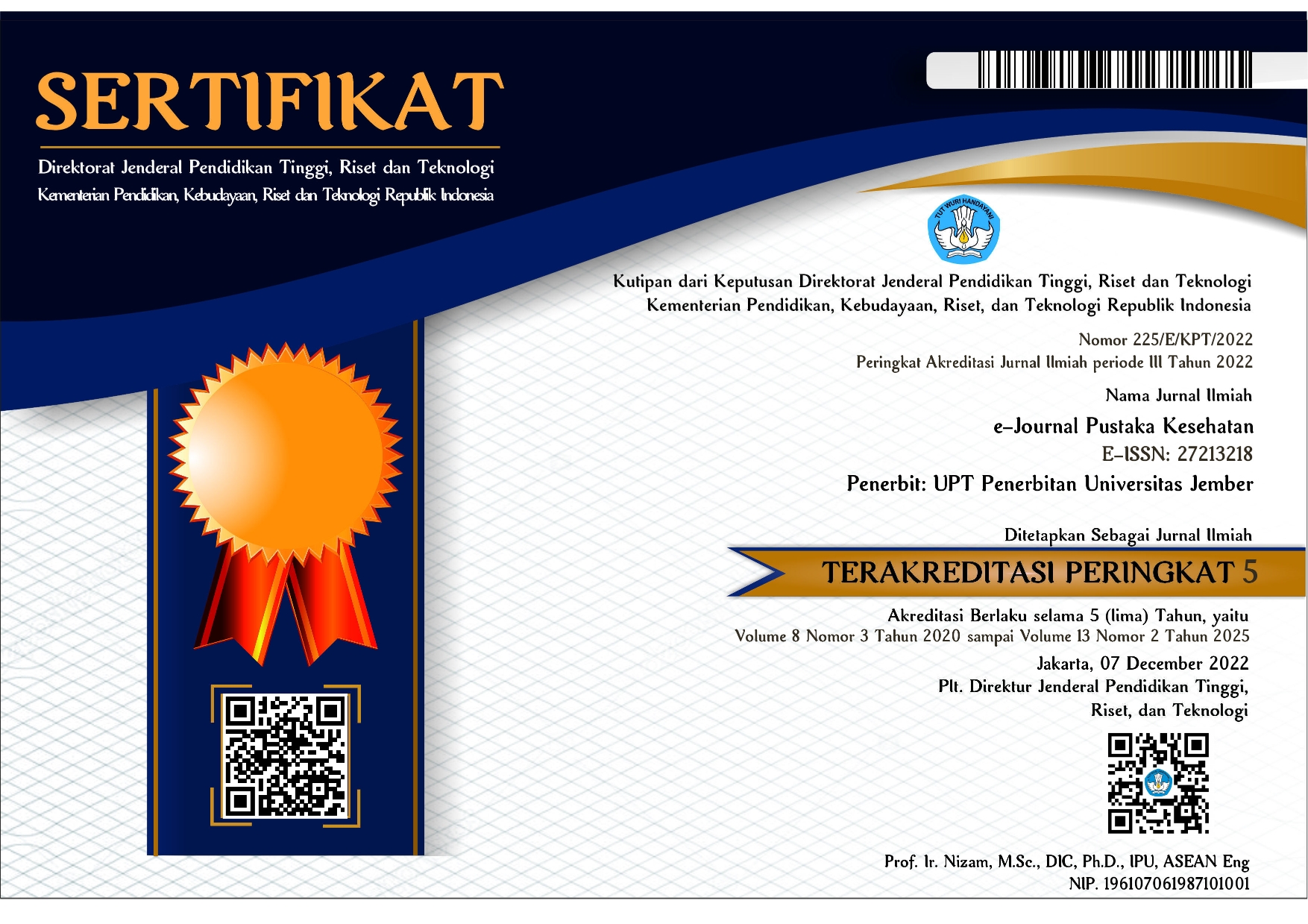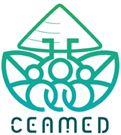Pengaruh Ekstrak Bangle (Zingiber cassumunar Roxb.) terhadap Kadar TNF-ɑ pada Mencit yang Diinfeksi Plasmodium berghei
Abstract
Malaria is an infectious disease caused by Plasmodium spp. Death in malaria is resulting from the parasite’s resistance to malaria drugs and immune system problem. This study was conducted to determine the immunostimulant activity of bangle extract (Zingiber cassumunar Roxb.) in mice infected with Plasmodium berghei. Mice were divided into 5 groups; negative control group [K(-)], positive control group [K(+)] and 3 treatment groups (P1, P2, P3). All groups except K(-) were infected with P. berghei, P1 was treated with Bangle ethanolic extract 0,904 mg/gBW, P2 was given with Bangle ethanolic extract 0,904 mg/gBW and artemisinin 0,0364 mg/gBW, P3 was treated with artemisinin 0,0364 mg/gBW. After 4 days treatment, blood TNF-α from intracardial was measured. The result showed that TNF-α of P1, P2, P3, K(+) and K(-) were 77,46 ± 33,96 ρg/ml, 55,08 ± 15,19 ρg/ml, 85,56 ± 22,43 ρg/ml, 102,81 ± 61,76 ρg/ml, 41,29 ± 2,28 ρg/ml, respectively. The Mann-Whitney test showed p value ≥ 0,05. In conclusion, Zingiber cassumunar Roxb. extract had no effect on TNF-α of P. berghei-infected mice.
Keywords: immunostimulant, Zingiber cassumunar Roxb, TNF-α
e-Journal Pustaka Kesehatan has CC-BY-SA or an equivalent license as the optimal license for the publication, distribution, use, and reuse of scholarly work. Authors who publish with this journal retain copyright and grant the journal right of first publication with the work simultaneously licensed under a Creative Commons Attribution-ShareAlike 4.0 International License that allows others to share the work with an acknowledgment of the work's authorship and initial publication in this journal.











